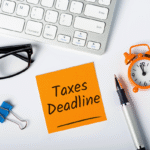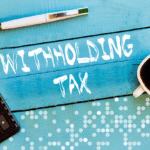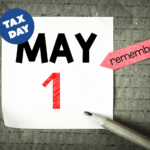Millions of Americans choose not to file their taxes every year. This can be for a variety of reasons, but the most common one is that people feel like they can’t afford to pay. If you have failed to file your taxes for a few years, you may be feeling anxious and overwhelmed at the thought of trying to get back into the tax system. You are not alone. Many people find themselves in this situation every year.
The good news is that there are ways for non-filers to get back into the tax system without facing penalties or fines. In this post, we will provide you with information on how to get back into compliance with the IRS and avoid any penalties or fines. We will also discuss some of the options available to you if you owe money to the IRS. Let’s get started.
Who Is A Non-Filer?
A non-filer is someone who has failed to file at least one tax return in the past. There are a variety of reasons why people choose not to file their taxes, but the most common one is that they can’t afford to pay.
What Are The Penalties For Not Filing Taxes?
The penalties for not filing taxes can be significant. If you fail to file your taxes, you may be subject to a penalty of $50 for each month that your return is late. This can add up quickly if you have failed to file for several years.
In addition to the penalties for being late, there are also penalties for not paying your taxes. If you owe money to the IRS but do not pay it, you will be subject to a penalty of 0.05% of the unpaid tax per month. This penalty can also add up quickly and should be avoided if at all possible.
Can I Get In Trouble If I Don’t File My Taxes?
If you don’t file your taxes, you may eventually find yourself in hot water with the IRS. The agency may choose to audit you or even pursue legal action. It is important to remember that the penalties for not filing taxes are significantly higher than the penalties for filing late.
How Can I Get Back Into Compliance With The IRS?
If you want to get back into compliance with the IRS, there are a few things you can do, as follows:
1. The first step is to file all of the past-due tax returns. You can do this on your own or by hiring a professional.
2. Once you have filed your past-due returns, you will need to pay any taxes that you owe. You can do this by paying in full or by setting up a payment plan with the IRS.
3. After you have filed your past-due returns and paid any taxes that you owe, you will need to file your current year’s return. This is important because it will help to show the IRS that you are back in compliance.
4. Be consistent! Once you are back in compliance, it important to stay current on your tax filings. This means that you need to file your taxes on time every year.
What If I Can’t Pay My Taxes?
If you can’t pay your taxes, there are a few options available to you:
1. You can set up a payment plan with the IRS. This will allow you to pay your taxes over time, and it will also help to reduce any penalties that you may be facing.
2. You can apply for an offer in compromise. This is a program that allows you to settle your debt with the IRS for less than you owe.
3. You can file for bankruptcy. This should be considered as a last resort, but it may be the best option for you if you are unable to pay your taxes or other debts.
How Can I Avoid Future Problems With The IRS?
If you want to avoid future problems with the IRS, there are a few things you can do:
File your taxes on time every year: This is the best way to stay in compliance with the IRS and avoid any penalties or fines.
Pay your taxes in full and on time: This will help to keep you in good standing with the IRS and reduce the chances of being audited or having legal action taken against you.
Keep good records: This is important for both filing your taxes and in case you are ever audited by the IRS. Good records will help to show that you have filed your taxes correctly and paid what you owe.
If you follow these tips, you should be able to avoid any future problems with the IRS. However, if you do find yourself in a situation where you are not in compliance with the IRS, it is important to take action as soon as possible to get back into good standing.
The sooner you take action, the better off you will be. If you wait too long, the penalties and interest can add up quickly and become difficult to manage. So if you’re not sure what to do, don’t hesitate to reach out to a professional for help. They can guide you through the process and help you get back on track.
We Can Help
At Morris and Associates Tax Specialists, we understand the challenges that non-filers face when trying to get back into compliance with the IRS. We can help you file your past-due returns, set up a payment plan, and avoid any future problems with the IRS. Contact us today to learn more.







